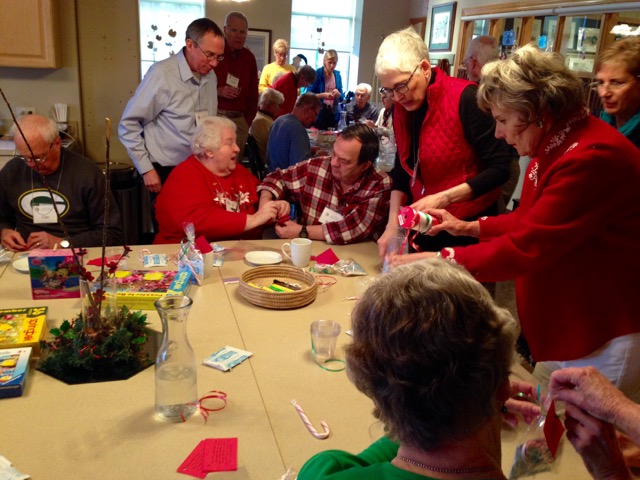It’s been 12 years since Alzheimer’s disease ended my mother’s time on earth. I miss her every day, and there is comfort in the words of Morrie Schwartz (Tuesdays with Morrie by Mitch Albom), “As long as we can love each other, and remember the feeling of love we had, we can die without ever really going away. All the love you created is still there. All the memories are still there. You live on—in the hearts of everyone you have touched and nurtured while you were here. Death ends a life, not a relationship.”
Truth is, the older we get, the more precious are our memories. Once gone, what would we pay to get them back? Tragically, Alzheimer’s disease robs its victims and their families of the most tenacious grip onto their memories, and ultimately – of the very presence of their loved ones.
THE CONCEPT OF ‘MEMORY CAFES’
The idea of Memory Cafés originated in the Netherlands in 1997, then spread to England in 2000. The first Alzheimer’s Café in the United States started in 2008 in Santa Fe, New Mexico. Today the number of memory cafés in the US is well over 200 and growing.
Memory cafés are a safe haven for people experiencing early stage dementia, mild memory loss, or cognitive impairment, while offering concerned family members a hopeful connection to others in the larger dementia-care community.
“It’s a group of people coming together and having a good time,” said Susan McFadden, Ph.D., one of the founders of Fox Valley Memory Project. Susan is a gerontologist, professor emerita in the psychology department at the University of Wisconsin Oshkosh, and a human research subject in the WRAP study.
Susan and her husband, the Rev. John McFadden, are dedicated to improving the quality of life for people with dementia, as well as their family care partners and friends. In 2011, after publishing their book Aging Together: Dementia, Friendship, and Flourishing Communities (John Hopkins University Press), the McFaddens went to England on a mission.
“We drove 860 miles on the other side of the road to see memory cafés,” said Susan. Then, they brought the idea home.
I was initially surprised in 2013 when I attended an event sponsored by Community Foundation for the Fox Valley Region (CFFVR) and learned about memory cafés. The CFFVR was the major funder that launched the Fox Valley Memory Project. Now we have memory cafés in many communities in Wisconsin. The Fox Valley Memory Project sponsors monthly cafes in seven locations. Check their website for the café schedule. People are welcome to attend cafés in as many locations as they want.
The McFaddens currently facilitate a monthly memory café at the Atlas Coffee Mill in Appleton, Wisconsin where lively discussions, information sharing, refreshments, camaraderie, and creativity abound.
“You can’t tell who has dementia and who doesn’t,” said Susan. “It’s people caring for one another. One of the key elements is hospitality.”
Susan said that one of the project’s primary goals is to help people understand dementia in order to end the stigma and social isolation it can bring.
“It’s comforting, being with others and knowing this is a safe place. We’re very honest about dementia – we use the word.”
A gerontology professional is on hand at the monthly gatherings to answer questions.
What a blessing it would have been to have a memory café when my mother was alive. She would have loved participating.
MEMORY CAFÉS IN OUR NEIGHBORHOODS
While volunteering at one of the Fox Valley Memory Project Cafés in my hometown, New London, Wisconsin, I was encouraged and touched to find:
• A warm, welcoming environment where people with memory issues and those who care about them can laugh, learn, and engage socially.
• An atmosphere of compassion where a simple smile can convey comforting approval and affection.
• Family and caregivers experiencing respite, away from the confines of the affected person’s home where concern for safety requires constant surveillance.
• A place where memories can be unlocked by a melody, a show and tell object, or involvement in a craft activity.
• Others living the journey I endured with my mother, experiencing support from a community gathered in a spirit of love.
If you’re visiting this site, you no doubt share an interest in Alzheimer’s disease—perhaps from a frontline perspective caring for a loved one. If so, locate and visit the memory café nearest you, and find out how this resource can offer comfort and hope during often challenging times.
-Jo Hillman, Associate Producer

